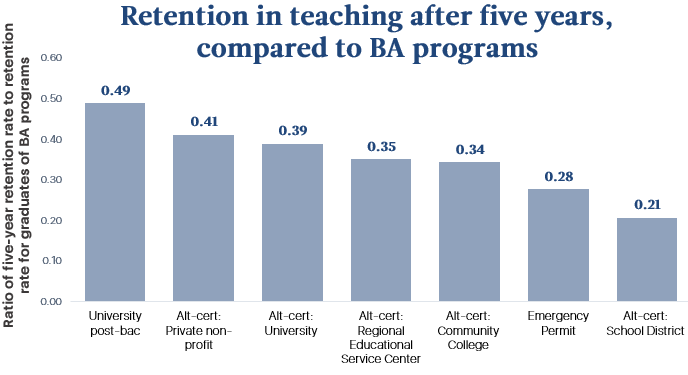Unlike any other state, the majority of Texas teachers are prepared by non-traditional programs. The popularity and variety of alternate route programs make Texas a particularly interesting place to look at these programs' impact on how long someone is likely to stay in teaching, which Edward Fuller of the Pennsylvania State University and Andrew Pendola of Auburn University did in a report on retention of STEM teachers.
Fuller and Pendola find that math and science teachers who attended traditional, university-based preparation programs as undergraduates are the most likely, by far, to still be teaching five years after they entered the profession. Teachers who participated in alternative certification programs, where teachers immediately go into the classroom, fared worse. For example, the figure below shows that teachers coming from private non-profit alt-cert programs have only 40% of the retention rate of teachers coming from bachelors' programs, five years in.
 Adapted from Fuller and Pendola's findings on five-year retention in the state workforce, controlled for a variety of teacher-, student-, and school-based factors.
Adapted from Fuller and Pendola's findings on five-year retention in the state workforce, controlled for a variety of teacher-, student-, and school-based factors.
The benefits of student teaching may be one reason that teachers who graduated from traditional programs were more likely to remain in teaching. However, student teaching alone doesn't explain everything that makes a BA pathway a better retention model, since teachers who attend university post-bac programs also experienced a student teaching component but quit at higher rates. There's more to study here.
